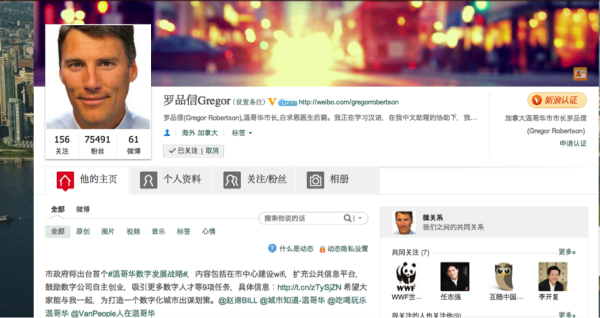The number of immigrants in Canada is growing at breathtaking pace. By 2031, a third of the population of Canada is projected to be a visible minority —— that’s an astonishing 14.4 million people! Within two decades, immigrants with different linguistic backgrounds will account for the majority in both Vancouver and Toronto. This poses a significant challenge for politicians who will increasingly find it difficult to reach out to their constituents without adapting their approach to this changing voter base.
After the recent Liberal Party’s ethnic votes scandal demonstrates, there remain questions about how politicians should build relationships with ethnic groups. Chinese immigrants, for instance, sometimes prefer to be communicated with in their native language when it comes to complicated policies. In order to engage with this group, politicians have to use the right communication tool.
It is no surprise that social media is quickly growing in importance as a complementary channel to reach audiences who are often ignored, to the detriment of politicians. This supports the democratic process because people can express their political views and share them with others. There are many forward-thinking politicians who use social media and believe they can more effectively reach their audiences by staying in touch with people on popular sites such as Facebook, Twitter, or YouTube. However, it’s important to note that many immigrants and even Canadian-born minorities are active on other social platforms that are popular in their birth country. This is especially true of the Canadian Chinese community. Sina Weibo, with more than 500 million registered users, is one of the most popular social networks in the Chinese community. It is an ideal channel for politicians to communicate directly with Chinese Canadians.
For example, City of Vancouver Mayor Gregor Robertson created a Sina Weibo account late last year. Within 24 hours, more than 14,000 users followed him. After five months, the number exceeds 75,000. The mayor shares new policies, ongoing proposals, his daily life at City Hall, and comments on popular posts about Vancouver. Meanwhile, his followers comment on his policies, provide feedback, and share their happiness or concerns about Vancouver. By tracking the number of reposts and comments, Mayor Robertson gets to know what is currently popular among the Chinese immigrants.
On Sina Weibo, there are Vancouver-based Chinese groups that cover specific interests: daily news, international studies, real estate, food and travel, environmental protection, etc. By tagging and reposting these groups’ messages, Mayor Robertson is able to bring targeted messages to specific audiences and attract new followers.
How to Build Relationships on Sina Weibo
The following guidelines detail how a politician can build relations with the Chinese Canadian community on Sina Weibo.
1. Set up a Sina Weibo Account.
This first step demonstrates a politician’s understanding of Chinese culture and determination to communicate directly with Chinese Canadians. Although one could post Sina Weibo messages in English, these messages are unpopular because Chinese immigrants appreciate messages in their own language on this platform. Thus, politicians may need to find Chinese-speaking individuals or local agencies to help set up and manage their account.
2. Post original content in Chinese.
Whenever there is a new message, policy, or proposal, extract key highlights and translate them into Chinese. Attaching pictures or videos makes posts more appealing.
3. Constantly monitor comments and direct messages.
Just like Twitter, Sina Weibo allows followers to send a direct message to a politician, or make comments that are publicly visible. It is important to constantly monitor these dialogs in order to address an issue before it turns into a crisis.
Because of the volume of messages, it may be difficult to respond to everything. Therefore, identify and respond to key questions that need clarification, or comments that may lead to interesting conversations.
5. Find influential groups and tag them in your posts.
Search keywords on Sina Weibo to find relevant groups to help spread messages. One can identify which groups are influential by looking at the number of followers and daily activities. These groups are powerful in terms of spreading announcements to a targeted audience.
Social media is complementary to traditional media since it offers more interaction, reactivity, and connectivity. Political officials can motivate Chinese Canadians on Sina Weibo to go vote, and can convince them to become their advocates and thereby influence others. It is a powerful tool to create transparent interactions and if well managed, can help politicians build strong relationships with the Chinese community in Canada.




